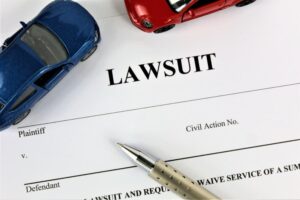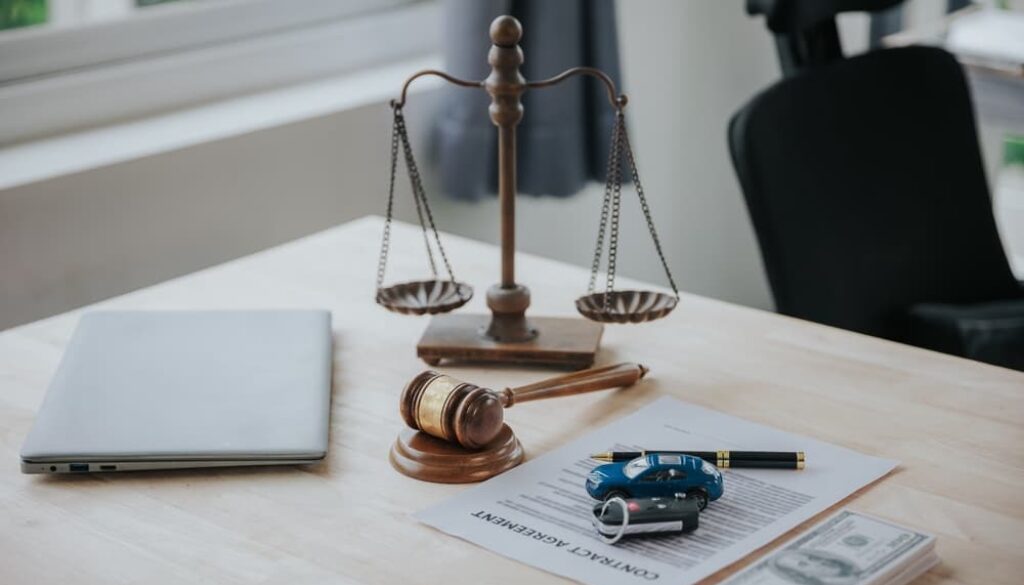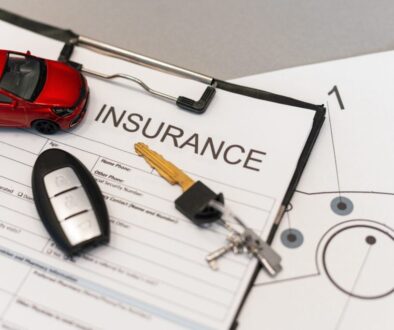How Much is a Car Accident Claim Worth?
Car accident victims who suffer severe injuries frequently incur high medical costs, not to mention lost income due to not working after their accident. The total settlement or verdict value of a car accident claim depends upon various factors, including the nature and extent of the accident victim’s injuries and the jurisdiction where the claim is pending. Since every car accident case is different, it is difficult to determine an “average” payout for car accident claims and lawsuits. While some car accident claims may settle for a few hundred dollars, others may settle for hundreds of thousands.
One thing you can do to maximize the monetary recovery you receive from your car accident is to retain an experienced personal injury attorney to represent you as quickly as possible after your accident. This proactive step ensures immediate legal support, timely investigation, and collection of vital evidence related to your case. By securing legal representation promptly, you establish a strong foundation for your claim, enabling your attorney to navigate the complexities of your case effectively and advocate vigorously on your behalf.
First, your Tulsa car accident attorney can investigate your car accident circumstances and determine your eligibility for filing a successful claim or lawsuit. Next, your lawyer can submit documents to the insurance company and pursue settlement negotiations on your behalf. Finally, suppose the insurance company denies fault for the accident or will not make you a fair settlement offer. In that case, your attorney can file a lawsuit in the state court system and pursue a favorable litigation result.
What are the Most Common Injuries in a Car Accident?

Car accidents can result in various injuries, ranging from minor to severe. The types of injuries that accident victims sustain often depend on factors such as the collision’s force, the use of safety features (e.g., seat belts and airbags), and the vehicles’ speeds. Some of the most common car accident injuries include:
Physical Injuries from Impact
- Fractures and broken bones – The force of impact in a car accident can lead to fractures and broken bones. Commonly affected areas include the ribs, legs, arms, and collarbones. The severity of fractures varies and may include relatively minor hairline fractures up to severe compound fractures.
- Back injuries – The force of impact in a car accident may bring about various back injuries, including vertebrae fractures and herniated discs. As a result, the accident victim may need to undergo surgery or attend physical therapy sessions.
- Knee injuries – Knee injuries, which commonly include fractures and ligament tears, may happen when the force of a car collision causes a driver or passenger’s knee to strike the panel in front of them, such as the steering column or glove compartment.
- Internal injuries – The force of impact from a collision may also cause damage to internal organs, leading to internal bleeding or organ dysfunction. To minimize the likelihood of internal injuries, car accident victims must receive prompt medical treatment for their injuries.
- Seat belt injuries – While seat belts save lives, they can also cause injuries in high-impact motor vehicle collisions. Seat belt injuries may include bruising, chest contusions, or fractures caused by the restraint system during a forceful crash.
Soft Tissue and Surface Injuries
- Whiplash – Whiplash is a soft tissue injury that occurs when an accident victim’s head suddenly moves forward and backward due to the collision force, causing strain on the neck muscles. It is a common injury in rear-end collisions and can lead to headaches, stiffness, and severe neck pain.
- Muscular sprains and strains – Car accidents can cause injuries to an accident victim’s soft tissues, including muscles, tendons, and ligaments. Strains and sprains can result from sudden force and lead to swelling and loss of range of motion in the affected areas.
-
Cuts and lacerations – Sharp objects inside a vehicle, including broken glass, may cause a driver or passenger to suffer deep cuts and lacerations, which may lead to various infections and require stitches to treat.
Head and Psychological Trauma
- Post-Traumatic Stress Disorder (PTSD) – PTSD and other psychological harm can result from the emotional trauma of a car crash. In serious accident cases, for example, accident victims may experience flashbacks, anxiety, and difficulty coping with the aftermath of their accident. As a result, they may need to be treated by a mental health professional, such as a psychological or psychiatrist, for their symptoms.
- Concussions and traumatic brain injuries (TBIs) – Head injuries are prevalent in car accidents, ranging from concussions to severe brain injuries and comas. These head injuries are common when the force of a collision causes an accident victim to strike their head on a vehicle component, such as a window, steering wheel, or headrest.
Understanding these common car accident injuries emphasizes the importance of seeking prompt medical attention after an accident, even if injuries seem minor initially. Early diagnosis and treatment can contribute to better outcomes and help accident victims on the road to recovery. Seeking early treatment also shows the insurance company that the accident victim’s injuries are serious and that they are deserving of favorable monetary compensation.
Factors that Determine the Ultimate Value of a Car Accident Case
Since every car accident claim or lawsuit is different, not all accident victims will be entitled to recover the same types or amounts of financial compensation. Some of the most common factors that may influence the monetary damages you receive in your case include:
- The jurisdiction where your case is pending since some jurisdictions are more “plaintiff-friendly” than others
- The nature and extent of your injuries and whether or not you suffered a permanent injury in your accident
- The likelihood that you may need to undergo a future medical procedure or other medical treatment for your accident-related injuries
- The amount of time that you missed from work and the amount of money that you lost due to not working after your accident
- The insurance company and adjuster with whom you are dealing and the adjuster’s willingness to settle your case for an amount of money that you will accept
- Whether you are eligible to bring a claim for punitive damages against the at-fault driver, such as a drunk driver who caused your car accident
Legal Elements of a Car Accident Claim or Lawsuit

A car accident claim involves various legal elements that determine liability and compensation. First, establishing negligence is crucial. This requires demonstrating that the at-fault party breached their legal duty of reasonable care, subsequently causing the car accident. Evidence such as traffic violations, witness statements, and professional opinions may support this claim.
Causation and Proving the Connection
Next, the injured accident victim must prove causation, showing a direct link between the at-fault party’s negligent action/inactions and the injuries or damages they suffered. Medical records, accident reconstruction reports, and professional testimony can help establish this causal relationship.
How Damages Are Calculated
Quantifying damages is another critical aspect. This includes economic damages like medical expenses, property damage, lost income, and non-economic damages such as pain and suffering. Proper documentation, receipts, and professional evaluations contribute to a comprehensive assessment of the accident victim’s losses.
The Role of Insurance in a Car Accident Case
Insurance coverage also plays a pivotal role in car accident claims. Understanding policy limits, coverage types, and applicable exclusions is essential. Communicating effectively with insurance adjusters is key to navigating the claims process. A skilled car accident attorney can handle all written and oral communications with insurance company representatives in a personal injury case.
What Happens If Your Case Goes to Trial?
When parties cannot reach a favorable settlement agreement, litigation may become necessary. Filing a lawsuit initiates the formal legal process. Discovery, where both parties exchange relevant information, precedes the trial. During a civil trial, the parties present evidence (including documentary evidence), witnesses testify, and attorneys make legal arguments. The judge or jury then determines liability and assesses the damages to award the injured accident victim.
Legal Deadline You Can’t Afford to Miss
State statutes of limitations impose time constraints on filing a car accident claim. Moreover, missing the deadline may prevent the accident victim from recovering monetary damages for their injuries. Therefore, prompt action is crucial in initiating legal proceedings.
A skilled car accident lawyer in your area can file a timely claim or lawsuit on your behalf, safeguarding your legal right to recover the compensation you need.
Monetary Damages in a Car Accident Case
Monetary compensation in a car accident case aims to address various losses that an injured party causes due to another driver’s negligence. The primary goal of monetary damages is to provide financial relief for both economic and non-economic losses resulting from the accident.
Economic damages encompass tangible, quantifiable losses. Medical expenses are significant, covering hospital bills, surgeries, rehabilitation, and ongoing medical treatment. Accurate documentation proves these claims, including medical records, invoices, and medical records from qualified healthcare providers. Property damage, including repair or replacement costs for the affected vehicle, is another component of economic damage.
Lost income and future earning capacity represent additional economic considerations. If the injured party cannot work due to injuries from the accident, they may be eligible for lost income compensation. The insurance company may consider a medical provider’s estimation of future (ongoing) medical treatment costs for long-term or permanent injuries affecting earning potential.
Non-economic damages, on the other hand, address intangible losses that are often difficult to quantify. Pain and suffering, emotional distress, loss of use of a body part (such as from a paralysis injury), and loss of enjoyment of life fall under this category. Evaluating these damages involves subjective factors, and experienced car accident lawyers often rely upon case precedents, professional testimonies, and the severity of the accident victim’s injuries to determine appropriate compensation.
In car accident cases that involve egregious negligence (such as drunk driving) or intentional misconduct, accident victims may be eligible to receive punitive damages to punish the at-fault driver.
If you suffered injuries following a recent car crash, your attorney can evaluate your claim and estimate its value based on the case circumstances. Your attorney will then do everything possible to maximize your overall monetary compensation award, helping you become whole again after your car crash.
Negotiating with Claims Representatives in a Car Accident Case
A skilled car accident attorney can handle all settlement negotiations with insurance company representatives in your case. First, your personal injury lawyer will meticulously evaluate the details of your claim by thoroughly examining the police report from your accident, collecting witness statements, reviewing medical records, and assessing the extent of your damages. With this comprehensive understanding, your attorney can confidently present a compelling case to insurance company representatives during settlement negotiations.
Effective communication is key, and your lawyer can skillfully engage with the insurance company’s representatives on your behalf. They may articulate the specifics of the accident, emphasize liability, and explain the full effects of your injuries on your daily life. By presenting a clear and compelling narrative on your behalf, your attorney can establish the foundation for a strong negotiating position.
Your attorney can also accurately evaluate your case by considering not only immediate medical expenses and property damage but also anticipated long-term costs, such as ongoing medical treatment or loss of earning capacity. This comprehensive evaluation helps to ensure that the settlement amount you receive is fair and just, given your accident circumstances.
Negotiating settlements in a car accident case is often a back-and-forth process. Your lawyer can handle the exchange of offers and counteroffers in your case and continue negotiating until the case either settles or the parties reach an impasse.
If the insurance company does not make you a fair monetary settlement offer, your personal injury lawyer can escalate the matter to litigation. However, even after filing a lawsuit on your behalf, your attorney may continue settlement negotiations in your case and pursue the financial recovery you need and deserve. A skilled personal injury attorney can handle every step, ensuring you receive the financial compensation you deserve as quickly as possible.
Speak with a Car Accident Lawyer in Your Area Today

If you recently sustained injuries in a motor vehicle accident, you should immediately consult with experienced personal injury lawyer about your options for moving forward. Your attorney will guide you through the process and do everything they can to maximize your monetary compensation award through settlement or litigation in the state court system.





